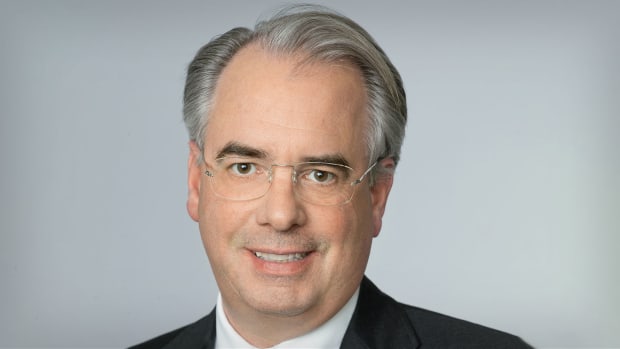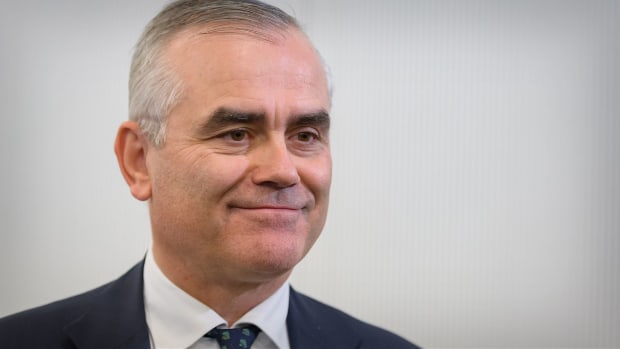Swiss banking giant Credit Suisse (CS) is facing a crisis of confidence after being embroiled in a series of financial scandals, including a prior CEO who oversaw a $5.5 billion loss.
The well-known Zurich-based bank, which got its start in 1856, has undergone a succession of CEOs during the past five years, which is not common for investment banks.
Ulrich Körner began his tenure at Credit Suisse only in August and had to cope with a series of financial missteps by the bank under the tenure of its previous CEO Thomas Gottstein who started at the beginning of the pandemic.
Gottstein resigned after the bank reported several unprofitable quarters, attributing the responsiblity on weak economic conditions in Asia and Europe.
Körner has the unenviable task of reassuring the hedge funds, pension funds and insurance companies who have watched their investment into the bank shrink rapidly as shares continue to plummet.
Only a year ago, Credit Suisse had a market capitalization of $22.3 billion and could boast of surviving both the global pandemic and 2008 financial crisis.
The second largest Swiss bank has seen over half of its market value wiped out and is now only worth $11.4 billion. Credit Suisse shares fell 56.2% in one year to $3.98 and rebounded on Tuesday.
The bank has been compared recently to Lehman Brothers, whose demise occurred after the financial crisis in 2008 when bankers' bets on mortgage-backed securities imploded.
The bank is now contending with a sharp increase of its credit default swaps (CDS) in recent days. CDS are financial products that act like a form of insurance against default.
Ulrich Körner's Tenure

Wikimedia Commons/UBS Group
For the past 24 years, Körner has served in executive roles either at Credit Suisse or UBS, the No. 1 Swiss bank.
After working at McKinsey, the consulting company, Körner served as Credit Suisse CFO Switzerland from 1998 to 2000, then ran technology and services as CEO from 2000 to 2001. Following a stint as CFO from 2002 to 2005 for Credit Suisse/Credit Suisse Financial Services, he worked as COO for the division from 2004 to 2005.
For 11 years, Körner ran various divisions of UBS, serving as CEO of UBS Europe, Middle East and Africa from 2011 to 2019 and also served as CEO of UBS Asset Management from 2014 to 2019.
He returned to Credit Suisse as CEO of its asset management division from 2021 to 2022 and was named as CEO of the bank on Aug. 1.
Körner recently addressed the growing speculation about the future of the bank in a memo to employees on Sept. 30 that was seen by TheStreet.
The CEO said that while "this is a critical moment" for the bank, he warned employees that the rumors would only continue.
He attempted to reassure them by stating that the bank's stock price does not determine its financial health or future.
"I trust that you are not confusing our day-to-day stock price performance with the strong capital base and liquidity position of the bank," Körner said. "We are in the process of reshaping Credit Suisse for a long-term, sustainable future - with significant potential for value creation. I am confident we have what it takes to succeed."
The losses at Credit Suisse do not appear to have a wider ranging impact currently and appear to be contained at the firm.
While Credit Suisse is a global company and is known for its mergers and acquisition deal making expertise, initial public offerings, bond sales and wealth management operations, its retail arm is focused mostly within Switzerland.
Körner has stated that the bank will reveal its turnaround plan on Oct. 27, but the market and its employees may not have the patience to endure the scruntiny until that time.
Rumors that Credit Suisse's financial woes could spread like the failure of Lehman Brothers in 2008 appear to be premature at this point.
After Lehman Brothers filed for bankruptcy, several other banks and insurance companies in the U.S. also failed.
Some companies were able to restructure and survived by being acquired by a competitor. Bear Stearns, another investment bank, was rescued when Bank of America acquired it. The largest U.S. residential mortgage lender Countrywide also went under, while another big residential lender Washington Mutual folded. Mega insurance company AIG had to be bailed out with billions in losses.
Thomas Gottstein's Challenging Tenure

Thomas Gottstein served as CEO for two years under major losses.
FABRICE COFFRINI/AFP via Getty Images
Gottstein began overseeing Credit Suisse during the start of the pandemic in 2020, inheriting a bank whose reputation was already tarnished when his predecessor, Tidjane Thiam, was ousted. Thiam left the firm after a fallout that started when a former executive revealed the bank had been following his moves.
But Gottstein's his attempts to turnaround the bank's struggles were not successful and were met with more scandals and massive losses to the balance sheet and market valuation. His two-year tenure was challenging as the investment bank lost billions of dollars when its clients Archegos Capital Management and Greensill Capital imploded and are now both defunct.
Cleaning up the bank's image became a struggle as investors lost confidence. The stock reached a low of $7 a share on March 20, 2020, and struggled to regain its losses with brief periods of a rebound.
The bank's balance sheet shrunk by $5 billion when Archegos, a family office that managed Bill Hwang's assets, defaulted on margin calls from investment banks including Nomura Holdings, Morgan Stanley and Goldman Sachs.
After those major losses, Credit Suisse promised to change its risk and compliance department and Gottstein said the bank's strategy would shift to its wealth management business that was less risky and away from its investment bank that had more liabilities.
But under Gottstein's short-lived tenure, the bank's chairman António Horta-Osório left in January 2022 after being caught using the bank's jet for personal reasons and breached pandemic quarantine rules, serving under a year.
The bank suffered other massive losses from paying large fines and court judgments. In 2022, the bank was ordered by a court in Bermuda to pay over $600 million to a Georgian billionaire after a private banker stole his funds.
A Swiss court in another case said Credit Suisse was guilty for assisting a crime ring in Bulgaria launder money that was related to cocaine trafficking.
Credit Suisse has said it is not for sale, but several potential acquirers such as U.S. banks said they were interested in purchasing divisions of the bank, according to sources that made the statements to the Wall Street Journal.
Other Executive Departures
Employee morale at Credit Suisse is somber as bankers are unsure about the future of the bank.
Resignations are not uncommon, even among the executive ranks.
One of Credit Suisse's senior dealmakers, Jens Welter, left to join Citigroup after 27 years with the establishment. Welter served as global co-head of banking when he left. Another executive departure is Daniel McCarthy, who served as head of global credit products.







